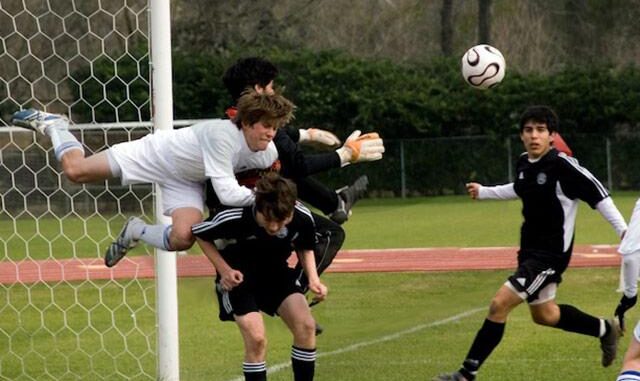
Athletes who play at the professional level are not the only ones who have concerns about the impact of a sports concussion. Minor league teams, college teams, and youth sports also produce their share of serious head injuries.
People who have never played a professional game even develop chronic traumatic encephalopathy (CTE), a progressive and degenerative brain disease associated with repeated head trauma. People who strike their heads in an accident, domestic abuse victims, and military veterans can also experience CTE.
A Life Changed Forever Due to Multiple Sports Concussions
Shannon Mocha played football throughout high school with little regard to his aggressive style of play. He often used his head as a weapon against other players and no one thought anything of it. He spoke of high school football being a violent game in the 1970s and 1980s and that people just accepted violence as necessary.
Mocha suffered several concussions in high school, including one that knocked him unconscious. He also sustained concussions in a car accident and when he struck his head against a concrete wall while playfully wrestling with a friend. He eventually developed CTE, but he would not receive an affirmative diagnosis until he was in his mid-40s.
Shannon Mocha’s life began to unravel in early adulthood. His marriage ended, he lost jobs, and he used alcohol and drugs to deal with the frustration of a life that felt out of control. Doctors continually sent him to psychologists and psychiatrists because they did not know how to help him.
Mocha eventually received a diagnosis of bipolar disorder and estimates that he took as many as nine psychiatric drugs at one time. This came after he visited multiple medical specialists over more than two decades with little results to show for it. His most prevalent symptoms included the following:
- Aggression
- Anxiety
- Blurry vision
- Confusion
- Difficulty sleeping
- Dizziness
- Headaches
- Memory problems
- Paranoia
- Slurred speech
Living with the effects of CTE for so long without receiving validation from the medical community took a toll on Mocha’s mental health and self-esteem. Once he received the diagnosis, he experienced an enormous sense of relief in knowing that he was not imagining his cognitive difficulties.
A judge agreed with his doctor’s assessment and awarded him the right to receive disability payments starting in 2015. The judge stated in writing that Mocha had the laboratory findings and symptoms consistent with CTE and met the burden of medically acceptable evidence. His disability case was noteworthy because medical examiners cannot make a definitive diagnosis of CTE until they perform an autopsy.
Shannon Mocha died at the age of 49 in April 2021. He was from Rapid City, South Dakota in the United States. Although his family suspects he suffered a fatal heart attack, his exact cause of death remains unknown.
Knowing that Mocha would support their decision, his family donated his brain to an organisation called the VA-BU-CLF Brain Bank. Seven months after his death, a spokesperson for the organisation confirmed that Shannon Mocha’s brain showed signs of CTE. His family took comfort in this report and found it validating, much as Mocha himself did in life.
Research Confirms the Need to Reduce Risks of Sports Concussion
Repeated blows to the head can have a significant impact on the quality of life, as Shannon Mocha’s story proves. Some people go on to develop CTE, which can shorten their lifespan. As more research on the impact of a sports concussion becomes available, team managers at every level are implementing changes that indicate they understand the seriousness of the problem. Limiting contact between players’ heads and the ball and improving medical protocol with injured players are just two common examples.
